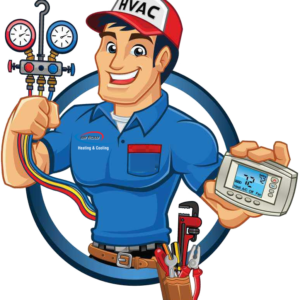Are you considering switching to a solar power system for your home or caravan? One of the key components you will need is a reliable 12v Lithium Battery Pack. These batteries are known for their high energy density, long lifespan, and ability to hold a charge for extended periods. However, with so many available options, choosing the right one for your specific needs can take time and effort. From understanding your power requirements to evaluating different features and brands, we’ve got you covered. Keep reading to learn how to make an informed decision and power your solar setup efficiently with the right 12-v Lithium Battery Pack.
Understanding the Capacity and Types of 12-V Lithium Battery Packs
When delving into the world of 12-volt lithium battery packs, grasping the nuances of their capacity and the different types available is foundational for making an informed decision. Capacity, expressed in ampere-hours (Ah), signifies the energy a battery can store.
It determines how long the battery can power your devices or system before recharging. For those relying on solar power, choosing a battery with an ample capacity, based on your energy consumption, is vital to ensure continuous power supply, particularly during periods of minimal sunlight. The market offers various 12-volt lithium battery packs, primarily categorised by their chemical composition.
Among these, Lithium Iron Phosphate (LiFePO4) and Lithium-ion (Li-ion) are the most prevalent. Each type has unique advantages, from safety and longevity to energy density and size. Your selection hinges on the specific requirements of your solar power system, including aspects like space, weight, and the battery’s expected lifespan. This initial understanding of battery capacity and the different types lays the groundwork for selecting the right 12-volt lithium battery pack tailored to your needs, ensuring a harmonious blend of performance, safety, and efficiency.
The Importance of Battery Capacity and What You Need to Know
Battery capacity is a critical aspect that determines the efficiency and effectiveness of your solar power system. Measured in ampere-hours (Ah), it signifies the energy a 12-v Lithium Battery Pack can store and supply over a period. This capacity impacts how long your system can operate autonomously, especially during periods without sunlight.
For solar applications, selecting a battery with sufficient capacity is crucial to ensure an uninterrupted power supply to your devices or home. However, balancing capacity with your system’s energy generation capabilities is essential to avoid underutilisation or overstraining of the battery. Therefore, understanding your energy needs and the capacity of different battery packs is fundamental to creating a reliable and efficient solar power system.
Comparing Different Types of Lithium Batteries
When comparing lithium batteries, it’s essential to weigh the attributes of Lithium Iron Phosphate (LiFePO4) against Lithium-ion (Li-ion) batteries. LiFePO4 batteries are distinguished by their safety, lower overheating risk, and, thus, less prone to catching fire. They offer a longer lifespan, typically enduring 2000 to 5000 charge cycles. This durability makes them a wise choice for solar power systems, where longevity and reliability are paramount.
On the other hand, Li-ion batteries boast a higher energy density, allowing for a lighter and more compact design. This characteristic makes them ideal for applications where space and weight are critical factors. However, Li-ion batteries generally have a shorter lifespan, around 1000 to 1500 charge cycles, and a higher susceptibility to temperature fluctuations. Choosing between them hinges on prioritising energy density, compactness, safety, and longevity for your specific application.
Understanding the Lifespan and Durability of 12 Volt Lithium Battery Pack
The longevity and robustness of a 12 Volt Lithium Battery Pack are crucial for maximising the return on investment in your solar power system. Typically, these battery packs boast a lifespan ranging from 2,000 to 5,000 charging cycles, contingent upon the battery’s chemistry and usage patterns.
Lithium Iron Phosphate (LiFePO4) batteries, in particular, are celebrated for their exceptional durability and stability, offering upwards of 5,000 cycles with minimal degradation. This resilience translates to reliable performance over many years, reducing the need for frequent replacements and ensuring a steady, uninterrupted power supply.
Factors such as the depth of discharge, operating temperatures, and charging practices significantly influence the battery’s endurance. Proper management and care can thus extend the lifespan further, making understanding these aspects essential for anyone looking to invest in a 12-volt lithium battery pack for solar applications.
The Role of Battery Management Systems (BMS)
A Battery Management System (BMS) maintains the health and efficiency of 12-v Lithium Battery Packs, particularly in solar power applications. This sophisticated system monitors and regulates the battery’s operation, ensuring it remains within safe charging and discharging parameters. It prevents overcharging and deep discharging, which could significantly diminish the battery’s lifespan and performance.
Equally, the BMS balances the cells within the battery pack, promoting uniform charge distribution and utilisation. It is critical, as imbalances over time can lead to reduced capacity and even failure of the battery pack. Additionally, the BMS provides valuable diagnostic information, such as the current state of charge, the health of the battery, and potential fault identification, enabling timely intervention and maintenance. This ensures not only the longevity of the battery pack but also the reliability and stability of the entire solar power system.
Sizing Your 12-v Lithium Battery Pack for Solar Applications
Sizing your 12-v Lithium Battery Pack correctly is paramount for the efficiency and longevity of your solar power system. To determine the appropriate size, calculate your daily power consumption in watt-hours. Then, assess the solar panel output on an average day to gauge the energy you can generate. Your battery should store enough power to cover your consumption during low sunlight without being too large to remain underused.
Factor in the battery’s efficiency, typically around 85-95% for lithium batteries, and aim for a capacity that provides a 2-3 day autonomy to safeguard against prolonged poor weather. Remember, oversizing can lead to unnecessary costs, while undersizing may leave you without power when needed. Accurately assessing your power needs against generation capability is critical for a balanced, effective solar setup.
Installation Tips for 12 Volt Lithium Ion Battery
Installing a 12v lithium-ion battery for your solar power system requires careful attention to detail to ensure safety and optimal performance. Start by ensuring the area for installation is dry, ventilated, and away from direct sunlight or heat sources to prevent overheating. Secure mounting brackets or enclosures protect the battery from physical shocks and vibrations.
When connecting the 12 Volt Lithium Ion Battery to the solar power system, always follow the manufacturer’s guidelines for polarity and cabling to avoid short circuits. Using fuse protection or a circuit breaker near the battery is advisable to safeguard against electrical mishaps. Additionally, ensure that all connections are tight and corrosion-free to maintain good electrical conductivity. Proper insulation of exposed terminals is crucial to prevent accidental contact or electrical shorts. Always consult the battery’s manual for specific installation instructions the manufacturer provides.
Safety Precautions and Guidelines
Adhering to safety precautions and guidelines is imperative when handling and installing 12-v Lithium Battery Packs. Always wear protective equipment, such as gloves and goggles, to shield yourself from potential chemical spills or electrical shocks. Ensure that the installation area is well-ventilated to prevent the accumulation of potentially hazardous gases. It’s crucial to avoid exposing the battery to water or moisture, as this can lead to short circuits and damage.
Never attempt to disassemble or modify the battery pack, as this could compromise its integrity and safety features. In case of a battery malfunction, immediately disconnect it from the system and consult a professional for advice. Regularly inspect the battery for any signs of damage, swelling, or leakage, and address these issues promptly to prevent accidents. Observing these guidelines allows you to maintain a safe environment while benefiting from your solar power system.
Wiring and Connector Requirements
For a successful and safe installation of a 12-v Lithium Battery Pack in your solar power system, understanding the specifics of wiring and connector requirements is paramount. It is essential to use high-quality, durable wiring and connectors that are designed to handle the amperage and voltage requirements of your battery pack.
The gauge of the wire should be chosen based on the maximum current draw of your system, with thicker wires used for higher currents to prevent overheating and potential fire hazards. It’s also important to ensure all connectors are securely fastened and provide a corrosion-resistant, firm connection to minimise resistance and potential power losses. Using connectors that are specifically designed for high-voltage applications is advisable, as they can maintain a stable connection under the dynamic conditions of a solar power system.
Waterproof or weather-resistant connectors should be considered for installations in environments exposed to moisture to prevent short circuits and corrosion. Additionally, ensuring compatibility between the battery management system (BMS) connectors and your solar power system’s components is crucial for seamless integration. Always follow the manufacturer’s recommendations for wiring and connectors to ensure the safety, efficiency, and reliability of your 12-v Lithium Battery Pack setup.
Location Selection and Mounting Considerations
Selecting an optimal location for your 12-v Lithium Battery Pack is critical. The chosen spot must facilitate a stable temperature environment, steering clear of high heat sources to avoid affecting the battery’s performance and lifespan. Ensure the area is not susceptible to dampness or water ingress, as moisture can severely damage the battery.
Prioritise a space, allowing straightforward access for routine inspections and possible future adjustments or expansions. It is paramount that the mounting area can securely support the weight of the battery pack to prevent any physical disturbances that could disrupt the integrity of the cells. Additionally, allocate enough space around the battery to enable adequate air circulation, aiding in temperature regulation. Proper mounting ensures not only the operational efficiency of the battery but also contributes to the overall safety and reliability of your solar power system.
Proper Connection Sequence
Following the correct sequence when connecting your 12-v Lithium Battery Pack is imperative to ensure a safe and efficient setup. Initially, verify that all devices connected to the system are turned off. Begin by connecting the positive terminal of the battery to the positive terminal of the solar power system, followed by connecting the negative terminals. This sequence helps to prevent any potential short circuits during installation.
Utilise appropriate cables and connectors as specified by the battery manufacturer to ensure a secure and optimal connection. It’s crucial to double-check the connections for correctness before powering on the system. Adhering to this proper connection sequence minimises risks and promotes the effective integration of your battery into the solar power system.
Charging and Maintenance Tips for Your 12-v Lithium Battery Pack
To ensure optimal charging of your 12-v Lithium Battery Pack, use a charger specifically designed for lithium batteries, matching the pack’s voltage and chemistry. Avoid overcharging by ceasing the charge cycle once the battery reaches full capacity. For maintenance, regularly check the battery terminals for corrosion or loose connections and clean them as needed.
Store your battery in a cool, dry place when not in use, particularly during extended periods of inactivity, to prevent capacity loss. Additionally, keeping the battery at a partial state of charge (around 50%) during storage can help preserve its health and prolong its life. Regular firmware updates for the Battery Management System (BMS) can enhance performance and longevity.
Maximising the Performance of Your 12v Li Ion Battery Pack
To maximise the performance of your 12v Li-Ion battery pack within your solar power system, it’s paramount to adhere to optimal charging practices and ensure the battery operates within its recommended temperature range. Charge the 12v Li Ion Battery Pack using a solar controller designed for Li-Ion chemistry to optimise charge cycles and enhance battery life.
Avoid exposing the battery to extreme temperatures; high heat can accelerate degradation, while cold can reduce efficiency. Implementing a routine schedule for checking the battery’s state of health through the Battery Management System (BMS) can preemptively identify issues, allowing for adjustments or repairs before significant degradation occurs.
Additionally, balancing the load distribution across the battery pack can prevent over-reliance on certain cells, promoting uniform usage and extending the overall life of the pack. If applicable, updating the BMS software can introduce new efficiencies and protection measures, keeping the battery system at peak performance. Engaging in these practices will prolong the operational life of your 12v Li-Ion battery pack and ensure it delivers consistent, reliable power to your solar system.
FAQs
Q: Can I use any charger with my 12 Volt Lithium Battery Pack?
A: It’s essential to use a charger specifically designed for lithium batteries that match the pack’s chemistry and voltage requirements. Using an incompatible charger can risk damaging the battery.
Q: How often should I perform maintenance on my 12v lithium battery?
A: Regular inspections every 6-12 months are advisable. Check for loose connections and corrosion, and ensure the Battery Management System (BMS) functions correctly. Also, keep the battery terminals clean to ensure optimal performance.
Q: Can I expand my solar battery storage in the future?
A: Yes, you can expand your system. However, ensure all battery packs are compatible and ideally of the same type and age to maintain efficiency and balance within the system.
Q: Can I install a 12-v Lithium Battery Pack outdoors?
A: While these batteries are durable, they should be installed in a dry, ventilated area, protected from extreme temperatures and moisture. If outdoor installation is necessary, ensure it’s in a weatherproof enclosure.
Q: What’s the best way to dispose of a 12-v Lithium Battery Pack?
A: Lithium batteries should be recycled or disposed of according to local regulations due to their hazardous materials. Contact your local waste management services for guidance.
Conclusion
Selecting the right 12v lithium battery pack for your solar power system is critical to ensuring a sustainable, efficient energy solution for your home or mobile application. By understanding your specific energy needs, the differences between battery types, and the importance of proper installation and maintenance, you can make an informed decision that maximises the performance and longevity of your solar setup. Remember, the goal is to balance capacity, durability, and safety to achieve a seamless integration with your solar power system, ultimately leading to a reliable, eco-friendly power supply.
| Related Business Listings |
| Directory Submissions |





